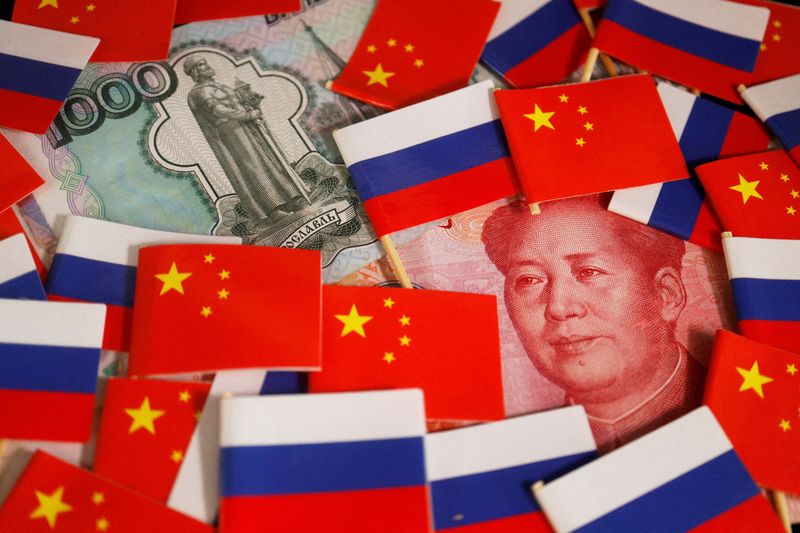MOSCOW (Reuters) - Russia's finance ministry on Friday said the maximum possible share of Chinese yuan in its National Wealth Fund (NWF) had been doubled to 60% as it restructures its rainy-day fund to reduce dependency on currencies from so-called "unfriendly" nations.
The ministry said the permitted share of gold in the NWF would also be doubled, to 40%. It said balances in the British pound and Japanese yen had been reduced to zero.
Russia has been using its NWF, which stood at $186.5 billion as of Dec. 1, to finance its widening budget deficit this year.
"The Russian finance ministry is continuing its consistent reduction of the share of currencies of 'unfriendly' states in the structure of the National Wealth Fund's assets," the ministry said in a statement.
Russia deems any country that has hit it with sanctions over its actions in Ukraine as "unfriendly" and has responded with counter-measures.
After the West blocked Russia's central bank from dealing in U.S. dollars, euros and pounds, and froze around half - or $300 billion - of its international reserves, Moscow accelerated a campaign to shift its substantial reserves into more accessible currencies.
Finance Minister Anton Siluanov said that trend will continue next year when Russia could resume transactions under its budget rule - a scheme where some profits on oil and gas sales are saved in foreign currencies.
"In order to hedge exchange rate risks, we have always (replenished the NWF) in foreign currency," Siluanov said earlier this week.

"From among the currencies of 'friendly' countries, the yuan has the characteristics of a reserve currency to the greatest extent, as well as sufficient liquidity in our domestic foreign exchange market," he added.
The Moscow Exchange, Russia's largest bourse, said yuan-rouble trading volumes would surpass dollar-rouble trading volumes next year as financial links between Moscow and Beijing continue to intensify.